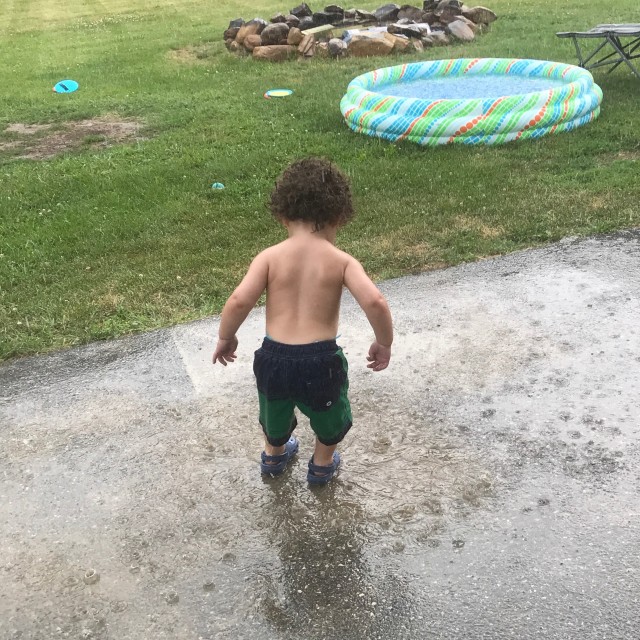We had a rough morning yesterday.
It shouldn’t have been. It’s the only morning of the week we don’t need to be somewhere early, so there should have been time to get up slowly, for the kids to play and not just get dressed-eat-get out the door. I made breakfast that involved more than using a toaster or pouring cereal in a bowl.
But still, no matter how many times we do it, the work of everything in between waking up and getting into the car felt like it required too much. Too much refereeing, too much negotiating, too much reminding and redirecting. By the time I climbed into the driver’s seat and realized that we would be late yet again, I was frazzled and frustrated and very far from the patient and loving mom I want to be. I wondered if all of the effort was worth it.
But we went anyway, and I walked into that worship service and sang, and I was reminded that when He “silenced the boast of sin and grave,” that covered my anger and impatience, too.
And then I loaded everyone up in the car for the drive home, and the kids started talking about what they learned, that Jesus can do anything. And of course that means He can somehow use my humble attempts at loving these children well.
And just like that, there was the reset and perspective I so desperately needed.
No one’s behavior magically got better. In fact, by the time I went by a drive-thru for lunch (because I may have gotten a new perspective but I was still tired) and got everyone in the door, I had dealt with enough whining and flinging arms and legs that I sent everyone straight to bed for a nap, myself included, and left the food on the stove to eat when we woke back up.
And the point of this story, what I want you to know, is this:
For those of you who, like me, are deep in the throes of motherhood, whether you are trying to parent children from hard places or you are just simply outnumbered,
Or maybe you just feel like you are often failing at whatever thing you’re called to do,
God is using you. Now. Even in your mess.
And also, don’t underestimate the power of a good nap.

